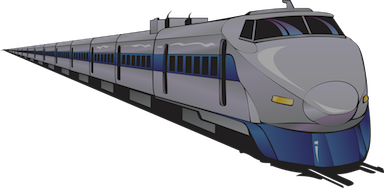I go until the train runs out of track. It’s comforting. I know the route well enough to find it so. You have all the exhilaration of escape alongside the knowledge that the train turns around again, looping back home.
I do this when I’m anxious—it’s like cross-hatching on a page over and over, whittling wood, scratching your arms raw.
Tonight, I need to be out of a house where when the shouting starts I’m no longer too young to be stepped around nor too old to take my own car and drive into the nearest state. Mom and her latest are playing polecats with the furniture—their warm-up to liquor-soaked make-up sex.
I go circling when I can’t face home. Circling is what I like to call it. It seems like an authentic pursuit and not just the placeholder for a better sort of life. I like to stay stuck for a while in a way I’ve fashioned for myself. I know the schedule—I know the length of time between stations. The cityscape is still alien, slum-hostile, but it’s at a safe distance, locked behind glass. Some might call the whole escapade moon-eyed—night-dreaming over black fields you can hardly see, suburb lights as loose markers between distances. Suburban lights flower and flower, breaking the dark over and over, with infinite variations.
You can really lose yourself looking out into that black, despite the fact your reflection stares right back at you, accusing your absorption. For as long as I can make it last I like to float for a while. I sup out of a furtive bottle of Jack I keep down low so nobody can see.
Though there’s hardly anyone to see. From time to time party-bound revellers burst in alongside humdrum office workers, each group the flipside of the others’ lives. I count them in and out as a game—my mind switching on and off in time with the doors’ slide and huff. The real late night time passengers are slower customers and less likely to notice a kid skulking near the back. They arrive all glamorous, haloed by alcohol and speed.
When they go they leave a scent of mindlessness.
Cameras stare our night shift ride. I pretend not to notice them. They’re not worth the anxiety. I reckon any driver working this job has gone cross-eyed from staring at the tracks a long time ago.
Sometimes, I rein myself in from suburb-gazing. You can almost grow sober on fluorescence if you allow yourself to look into it for long enough. Those sorts of places are designed to promote wakefulness, I reckon. They prevent people from floating out their windows into the dark.
I swerve away from the view outside when I can manage it, letting the black marker graffiti on the backs of seats distract me. You’ve got to sober up for the big curve. It’s the best part—the one transition that means something. The one thing that turns this straight line into a circle.
I feel the pressure of it as we heave towards where the tracks switch position. It’s like that pressure you feel on the platform when you know a train is coming—you get an electric presentiment of its coming all up the line.
Now, as it turns I brace myself against the teeth-numbing shiver of static by squeezing my legs against the seats in front, inventing pressure as mechanics jolt, resetting the opposite path.
Righted on its new course, the train settles back into airlessness, even and straight for the duration, as long as that lasts. But this part—the start of a new circuit—always deservers a toast.
So, I flick open my knife to carve my name on the back of the seat in front. There’s a whole record of my life etched here dating from years back. Like a long-time felon marking time in jail I’ve notched down a fair few night time circuits.
I gouge down the latest, scoring the plastic hard so it keeps.
